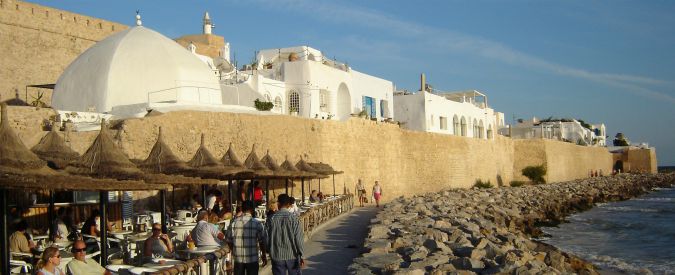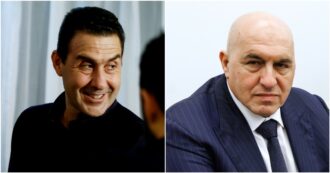A hotel in the heart of Hammamet has five stars and a private beach, two swimming pools, outdoor and indoor, a tennis court, a spa, of course, and the hammam and the gym, it has a restaurant, a café, a bar with billiards and whisky and darts, a park, and in the park, a playground, and an area for water sports, and another area for horse riding. It has rooms with masseurs and Jacuzzi tubs. The barber and the beauty salon.
All that for 30 euro per day.
How come?
And five-star hotels are all like that, here. A little bit further away, in another hotel, for five more euro you can enjoy also a golf course. They are all like that in Hammamet, and in all Tunisia. Tunisia is the only country where the Arab Spring didn’t fail. After 28 days of protests, on January 14, 2011 President Ben Ali resigned, and fled to Saudi Arabia. Today the country has a new constitution, and a new government, a government of secular and Islamist parties together: a role model for all the Muslim world. The only problem, we are told by analysts, is the economy: because of the 2015 terrorist attacks. Because of jihadists. If only tourists returned, we are told, Tunisia would be a great place to live.
Shayma, yet, works as receptionist in one of these fabolous hotels, and for 12 hours per day, every day. And 400 dinars per month. Less than her home’s rent. Should tourists return, for her nothing would change anyway. Because what should revive Tunisia’s economy, is what’s actually harming it.
And it is not a matter of jihadists. It is rather a matter of banks – even though, of course, having jihadists around is not of much help. But under Ben Ali, tourism tycoons got from banks significant loans: that were often never paid off. And that turned a few well-connected businessmen into rentiers, with a dangerous market distortion. Still today, 25 percent of the unpaid debts are tourism-related debts. About 120 hotels, out of 800, are into arrears, for a total of 1.3 billion euro. But the state covers all up through recurring recapitalizations of its three banks, that manage nearly 40 percent of Tunisia’s overall financial resources. Allowing five-stars hotels to charge just 30 euro per day.
Sometimes, even the breakfast you are served is made with subsidized food. Milk, flour. Oil. The food for the poor. Instead of funding schools and hospitals, the state funds our holidays.
In 2011, assets worth 13 billion dollars were confiscated to Ben Ali and his family, and 214 companies. They produced 3 percent of the private sector’s output, and 1 percent of jobs. But they got 21 percent of profits.
And now I understand that Tunisian jihadist to whom I asked: But what’s the point of targeting tourism? Of targeting the main source of income of the country? “We didn’t attack wealth,” he said. “We attacked injustice.”
Articolo Precedente
Isola dei Famosi 2018, altri due nomi confermati: Filippo Nardi e Jonathan Kashanian

Articolo Successivo
“Fu la salmonella a sterminare 15 milioni di Atzechi”







